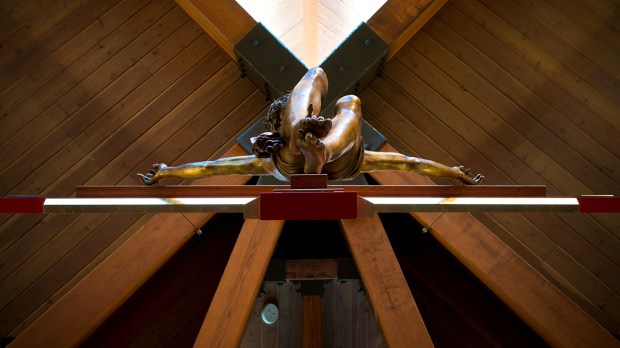For one of my day jobs, I’ve been reading Pre-Suasion by Robert Cialdini. Cialdini investigates how people make decisions and how we can influence them. He talks about how you can use his principles to improve your own focus, decision making, and productivity, but the bulk of his book is focused on marketing. What type of advertisement should you use to sell a Ford truck during the The Walking Dead? How can you influence people so that they evaluate your product on its strengths instead of on its weaknesses? It’s not exactly what I’d call spiritual reading.
Cialdini talks about some of the recent research involving attention. Researchers have discovered that directing a person’s attention to something can change how they think. Humans are hard-wired to assume what they’re looking at is important and influential. Cialdini gives an example from his own life. When he was writing his last book, if he was looking out the window at an academic quad, he started writing for an academic audience. If he was looking at normal people, he wrote for a popular audience. Since he wanted to market his book to a general audience, he did his best work away from academic surroundings.
Even though the book isn’t meant for spiritual lessons, I’ve been drawing some good fruit from it. I know I’m always telling myself that I need to make more time for prayer, that I need to spend more time acting as Christ would have me act, that, in the words of our Ash Wednesday liturgy, I must turn away from sin and be faithful to the Gospel. I usually assume that accomplishing these goals is simply a matter of willpower.
Cialdini’s work shows that our physical setting matters too. When I direct my eyes to political rants or mindless games, I am teaching myself that those things are important, deserve my attention, and ultimately have power over reality. Rationally, I know that’s not true, but to remember God when your gaze is turned toward these things requires more work.
Meanwhile, if I turn my gaze to the crucifix, or to the Gospels, it’s easier to remember who is really important and who is really running the world. If I turn my gaze to Facebook arguments, it’s easy to start feeling like fixing the person who is wrong on the internet is my vocation. If I turn my gaze to my family and my community, I can remember why God placed me here and now. For Lent, I need to turn away from sin and be faithful to the Gospel. Not just mentally, but with my whole body.
More to read: “Keep the crucifix before your eyes, and it will teach you everything…”
My work means I can’t completely leave the internet behind, or even abandon Facebook. However, I can practice the art of “scrolling on by” when someone is courting controversy. I can spend more time looking at babies and praying for people, and less time trying to correct others. I can rearrange my work space so that I can focus on the crucifix even as I write. (In fact, writing this, I realized I could hang a rosary over the corner of my monitor so that I can always see Jesus and Mary as I work. I’ll let you know how it goes.)
Cialdini talks about how looking at pictures of clouds causes people to subconsciously put comfort first, and how looking at pictures of pennies causes them to emphasize thrift. Could redirecting our gazes to things of God help us put Jesus first? I’m not sure, but this Lent, I’m going to give it a try.
More to read: “Follow me”: The message in Caravaggio’s ‘The Calling of St. Matthew’

